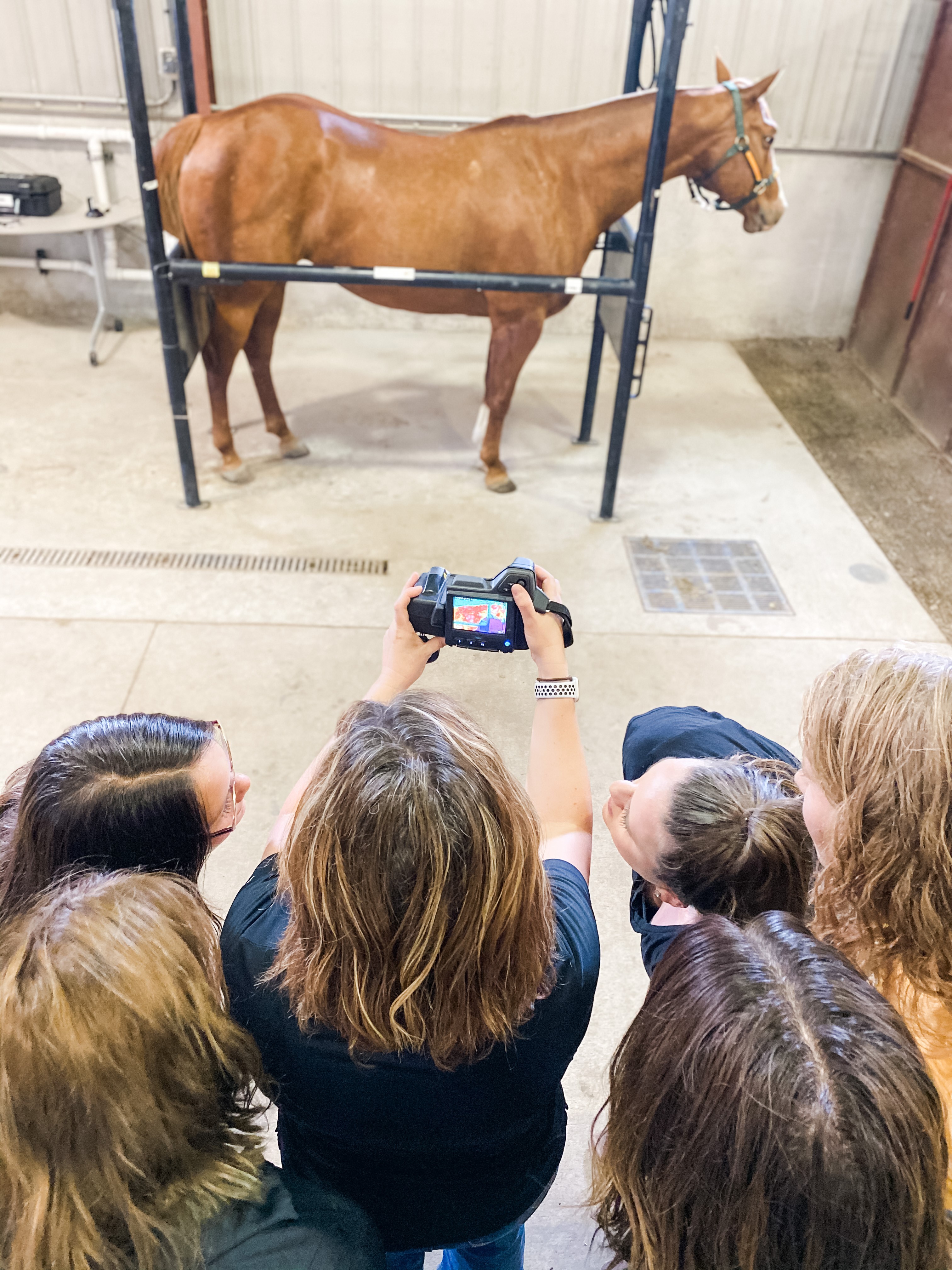Equine Science continues to grow, contributing approximately $177 billion to the U.S. economy. Careers in the U.S. horse industry support the equivalent of approximately 2.2 million jobs directly and indirectly. There are approximately 6.6 million horses in the U.S. with over 1.5 million people owning horses and an additional 39 million people identifying as horse enthusiasts.
THE PROGRAM
The Equine Science program provides a well-rounded, science-based education encompassing both classroom and experiential learning opportunities. For individuals interested in pursuing their education beyond a Bachelor of Science degree, the Equine Science curriculum can be tailored to meet the requirements for veterinary schools and graduate programs.
THE CURRICULUM
The Equine Science major is designed to provide a strong overall background with supporting course work in the sciences, humanities and general education. Program classes include anatomy, physiology, nutrition, health, production management, evaluation, horsemanship and equitation. Additionally, the curriculum requires students to complete an internship, study abroad or research experience. Experiential learning opportunities are a priority in the program with 70% of the equine courses providing students with hands-on learning. These unique experiences provide students with valuable knowledge about the equine industry both inside and outside the classroom.
An Equine Science minor allows students to explore several equine-related courses and gain general horse industry knowledge. This minor pairs well with any major offered at NDSU.
THE FACULTY
The Equine Science Program has outstanding faculty members with diverse backgrounds in the equine industry who are ready to help students learn and thrive at NDSU. Our faculty have taught internationally, earned multiple teaching and advising awards, and maintain active research programs.
Equine Science faculty expertise is complemented by other faculty within the Department of Animal Sciences and across the university. The overall quality of the faculty at North Dakota State University has been recognized through numerous awards for teaching and research excellence.
CAREER OPPORTUNITIES
Our graduates find exciting careers in diverse areas including sales representatives for nutrition, pharmaceutical and equipment products; marketing specialists; barn and facility managers; equine event and show managers; working with breed and industry associations; equine reproduction; extension educators; and riding instructors. In addition to career opportunities following graduation, many students choose to continue their education in veterinary schools or graduate programs.
EXTRA-CURRICULAR ACTIVITIES
The NDSU Horsemen’s Association provides a variety of equine-related outreach activities. The club supports the Intercollegiate Horse Show teams (western and hunt seat), sponsors collegiate horse shows, and conducts several youth educational events.
The NDSU Rodeo Club provides students the opportunity to gain experience and knowledge of the sport of rodeo. The club supports the Intercollegiate Rodeo Team and hosts a variety of rodeo related events and activities for the public.
FINANCIAL AID AND SCHOLARSHIPS
Part-time work and work-study programs are available at the equine center, in several different livestock units, and in animal science laboratories within the department. Over $80,000 in departmental scholarships are awarded to Equine Science, Animal Science and Veterinary Technology students annually. In addition, the College of Agriculture, Food Systems, and Natural Resources awards scholarships each year to incoming freshman and current NDSU students. Contact the Office of the Dean, College of Agriculture, Food Systems, and Natural Resources, for more information on college scholarships https://www.ag.ndsu.edu/academics/scholarships.
Sample Program Guide
IMPORTANT DISCLAIMER: This guide is not an official curriculum. This guide is a sample four-year degree plan of how students might plan this major with other degree requirements to complete their education in four years.Student plans will vary from this sample due to a variety of factors, such as, but not limited to, start year, education goals, transfer credit, and course availability. To ensure proper degree completion, enrolled students should utilize Degree Map and Schedule Planner in Campus Connection and consult regularly with academic advisors to ensure graduation requirements are being met.

